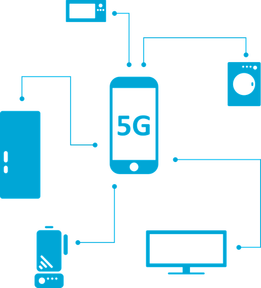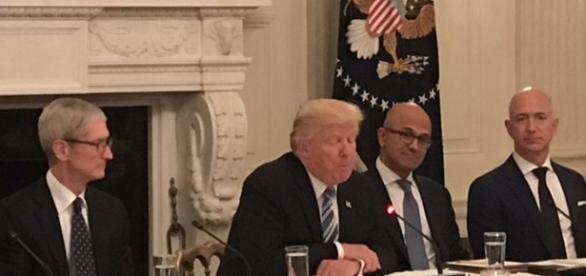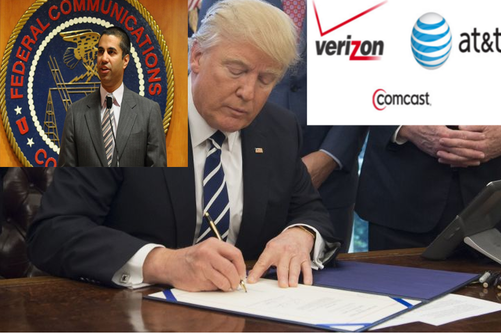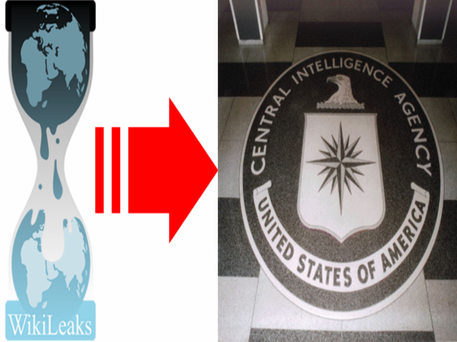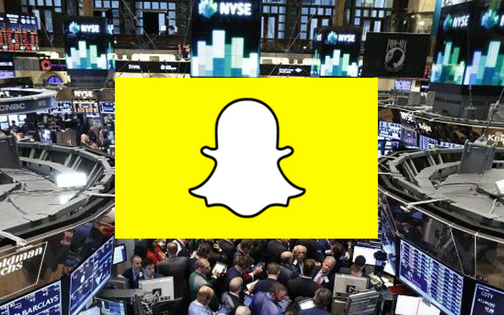|
5G, the fifth generation of wireless technology. What makes it better than 4G LTE, do we really need 5G, and what about the health risks of this new technology?
4G LTE (Long Term Evolution) has been the upgraded version of 4G for a while now, 4G LTE was pretty much the first "version" of 5G. 4G LTE offers faster speeds and better security than 4G. Per PCMag, 5G's networks will consist of small cells and could be as small as home routers. According to that article, 5G networks should not consist of large towers. The idea is, the more cells you have the more data you can get on the network. What's worse, large cell towers here and there, or a small area with multiple cells closer to each other? AT&T claims they're going to be the first ones to really implement this technology and offer it to their customers. According to PCMag, they believe AT&T will roll out 5G using millimeter wave technology, which can't reach very far, but is highly effective at the distances it can reach. This is why 5G networks will be placed closed to each other, and to be extremely effective and efficient, there will have to be a lot of these small cell networks around. According to Newsmax, 5G networks will be put onto street lights, buildings, signs, pretty much anywhere possible. There still needs to be infrastructure to support all of this, but that's only half the battle of implementing 5G. ISPs like AT&T have to go not only the states, but the counties and cities, they plan to implement 5G in. It's like fiber networks, you need to obtain approval from not just the feds and the states, but localities too. So, how do you feel about small cell 5G networks being placed literally all over town? That's the plan here. There will no doubt be a spike in radiation in the areas where they'll implement these networks, that's just a given. If you have so many of these small cell networks in one area, radiation will increase due to the concentration of these small cell networks. The industry wants to put this technology everywhere; from homes, to cars, to offices, to schools, to beaches, everywhere. The FCC certainly isn't standing in the way. The Los Angeles Times ran a story on the health hazards of 5G technology. In that story, they said male rats had a slight increase of tumor growths. These rats were involved in a long term high radiation test, but it shows the risks are there. 5G will expose humans to a significant increase in radiation, especially if it's implemented in every setting of human life, like the industry plans. In that same Los Angeles Times article, Leeka Kheifets, a epidemiology professor at UCLA, said "I don't think it's clear that there are health risks, but it's also not clear that there are no health risks." Honestly, 5G could have been designed better, and to be honest, there isn't anything wrong with 4G LTE. 4G LTE is fast enough, the only real perk of 5G is you'll be able to use more data at a slightly faster speed than 4G LTE. Ask yourself, do you really need that? Wireless connection speed is pretty darn fast as it is. Also, with these small cell networks everywhere, it can greatly increase the risk of cyber attacks and hacking. A bad actor could take out an entire city's network by hacking into or taking out a group of these small cell networks, and they way there are to be implemented, it won't take as much effort as a 4G network. Alex Jones has been very passionate about noting the health hazards and other risks associated with 5G networks. He has been long time friends with Dr. Edward Group. Group founded the Global Healing Center. Group himself is warning about 5G technology, and Alex had him on Infowars to talk about it:
Infowars has really been leading the charge on warning about the health risks associated with 5G networks. Dr. Group is also on board with Alex and Infowars on the potential health risks of 5G. This isn't some wacky conspiracy folks, it's real.
Here is another Infowars report on 5G health risks, this time by Le Ann McAdoo:
Sadly, the wireless industry is too far invested in this 5G technology for it be stopped or reconsidered. The industry wants it, the government wants it, businesses want it, but do average citizens want it? It doesn't seem to be widely talked about by regular folks, that's for sure.
Hopefully the wireless industry and government recognizes these health risks and does reconsider the technology it self, but don't hold your breath on it. Big cities and the government will get it first, the rural areas will be the last to get it more than likely. Businesses, cars, and planes though? No matter where you live, this technology will find you.
0 Comments
Kicking off this week, President Trump met with technology leaders. People like Tim Cook (CEO, Apple), Jeff Bezos (CEO, Amazon), Ginni Rometty (CEO, IBM), and many others such as the co-CEO of Oracle. This meeting was another example of Trump bringing people together to help get the country and government back on track.
Cyber security was a hot topic, "sweeping IT overhaul" for the federal government was brought up (well needed), and it seemed to have been a very productive meeting. It's no doubt that technology is and will be the industry power house going forward, but it digs deeper than that. The tech leaders that met at the White House on Monday are some of the richest most well connected people in the world. Money and connections go a long way anywhere. President Trump knows this and it could be another reason he wants to work so closely with them, because those people have and will continue to change the world year after year. Here's a video from the meeting per Fox Business:
Twitter and Facebook were no-shows at the meeting, but according to The Hill, Twitter wasn't invited because they didn't follow through on an emoji request from the White House. It just goes to show Jack Dorsey's (Twitter CEO) true feelings for this administration.
This meeting really boiled down to cyber security and education. Cyber security for the whole country, an update for government technology, and making coding a requirement for high school. The latter part is a great idea, and should have been done a long time ago. Coding is the future, and with the way AI is going, may be the only true tech job 50 years from now. It's simple, to be competitive in the 21st century, your technology sector has to be a power house and the US's has been for decades. It's time to combine the power of the private sector and the power of government and use those resources for the greater good of all US citizens. The tech firms have the know-how, money, and resources and the government has the power. Let's end this with a panel discussion on Fox Business summing up this tech meeting:
Ransomware may be in the hands of one of the worst possible countries, North Korea. Multiple outlets and even cyber security companies are saying it is more than likely that North Korea is carrying out ransomware attacks.
According to The New York Times, there are "hard links" connecting North Korea to the latest ransomware attack. Researchers believe the attack was carried out using methods and connections similar to the Sony hack in 2014, and South Korean cyber attack in 2013 which both were carried out by North Korea. The cyber security company, Symantec, believes it is "highly likely" North Korea carried out the ransomware attacks, according to CNBC. Symantec has found traces of code that have been used in previous North Korean cyber attacks. If this is true, which evidence is shaping up to say it is, it would mean North Korea could be capable of unleashing digital hell on the US or any country on Earth, because they already have. The WannaCry attacks were felt worldwide, and there was no stopping it until a blogger bought the domain WannaCry was pinging to. Here's more on this from ABC News:
North Korea has a hacking group dedicated to nothing but hacking. It's called Unit 180, a 6,000 man strong hacking unit. This is according to The Sun, and according to that article, Unite 180 uses attacks like WannaCry to raise money to Kim regime.
There is also a sister hacking group called Unit 120, which is around 1,800 strong that is assigned with hacking South Korean systems in event of a war. This could spell big trouble for the US and our allies, if North Korea wants to go to war, all they have to do is launch a cyber attack similar to WannaCry and they may have a big enough window of digital dark where they can carry out a military attack. It's sorta Red Dawn (remake) like. The US, our allies, and private companies need to step up cyber security and counter cyber attacks. North Korea can't be trusted at all, and we should assume North Korea was behind this for our own good.
Video source: Fox Business
WannaCry, the ransomware virus that spread throughout the globe last week like a wildfire. Today it has been reported of spreading throughout Asia. According to Fox Business, WannaCry infected computers in Asia after work on Friday, so when computers were logged back into, the virus became active.
Microsoft is putting the blame on the NSA, rightfully so, since it was stolen from them. That's per The Wall Street Journal, and per The Independent, Putin is also blaming the USA for the hack. Let's just be thankful that the virus ended up in the hands of blackhat hackers and not terrorists or enemies like North Korea and Iran. WannaCry can cripple governments and utilities just as easy as it did businesses. If implemented correctly WannaCry could have been used as a cyber weapon of war, and may have been shelved in the NSA just for that reason. Just imagine what could have happened if ISIS ended up this virus, or worse Iran or North Korea. The USA and our allies could have been crippled all across the board. WannaCry needs to be treated like any other virus, or at least precautions taken. Do no open any fishy sites or emails, and do not click on any links that do not look familiar or are random. Tricking humans into clicking on a link is the easiest way for someone to implement a virus/hack. Hours after the initial hack last week, by complete accident, a British blogger stopped the hack. According to Business Insider, a 22 year old British man was able to see the malware (WannaCry) was connecting to a specific domain, so what did he do? He bought the the domain for $10.69 and the hack was ceased. The Brit said he was just trying to monitor the hack and figure it out, but it halted the hack all together. The blackhats probably have figured that issue out and are working on a new way to implement and run the virus, but for the most part, the world seems WannaCry free with the exception of Asia right now, Let's hope that stays true. Scrolling through news.google.com you're going to come across articles with headlines that read something like "Trump just signed your Internet privacy away". Complete fake news people, and the mainstream media knows it, they hope you trust their brand and don't look into the story any further.
This morning President Trump signed the repeal of Obama-era FCC mandated regulations aimed at forcing ISPs to acquire consent from users before selling their data to third-parties. It's not a bad thought, but it puts the ISPs at a disadvantage against companies like Google and Facebook. Google and Facebook are regulated by the Federal Trade Commission and aren't strictly regulated by them. According to The Daily Caller, Facebook and Google sell your data to third-parties such as advertisers. This is why Ajit Pai thought it was inappropriate for the FCC to regulate the ISPs and have government force them to do something. By the way, the law never even went into effect, so nothing even changed. Now you can opt-out on certain data collections with Facebook and Google, but Facebook and Google will forever hold your data. The ISPs sift through your browsing habits and take a guess on what you may be interested in and cater ads to you based on that, and that's exactly how Facebook and Google operate. It's called targeted advertising. Verizon however did get busted a couple years back when they a tracking cookie that couldn't be deleted, which tracked users for targeted advertising. No third party will know about any of your data, there will be no way a third-party could gather data from an ISP and pin-point it back to you. Now the ISPs themselves can do that, but the third parties do not have access to that. That is according to a very good BGR article that you all should read. Also according to that same BGR article, companies like Verizon and Comcast have already made statements that they don't sell their customers' individual browsing history. ISPs do what companies like Facebook and Google do, use your data to target advertise. Even the Huffington Post admits you have no privacy online, which you don't. You remember the Wikileaks "Vault 7" leaks that are currently going on, right? The leaks that show how the CIA has access to almost anything that connects to the Internet, and can spy on you whenever and wherever. You should not expect privacy online, it is almost absurd in this day and age. The majority of the US either has a Facebook account or Google account, therefore if you haven't opted out, your data is being sold. The ISPs do the same and may know a lot less about your browsing habits, and you in general than Facebook and Google. Don't forget Google has Google Chrome, the web browser, a direct funnel for data collection, and now has their fancy new AI called Google Assistant. Do your own research, the mainstream media is continuing to push a negative narrative on anything the GOP or President Trump does. Repealing "privacy regulations" may sound like a bad thing, but ask yourself why? Why does the FCC want to get rid of the rules? Ajit Pai is a clear pro-business, pro-consumer FCC chairman, and the call to end the rules reinforces that. Pai and Congress would rather see the FTC, who regulates Facebook and Google, do the same regulating on the ISPs. That's fair. All this really was, was the government deregulating the ISPs. If you're concerned about your Internet privacy, check out some software that helps better protect you, and make sure to check all your privacy settings/policies on any accounts you have.
Elon Musk is known for his electric cars, space company, and soon to be known for connecting our brains with computers. Musk is starting a cranial computer company called Neuralink.
Neuralink will focus on creating cranial computers, which are small electrodes implanted in ones brain by means of brain surgery according to USA Today. The electrodes could be used to treat brain disorders, depression, and could one day enhance brain function, all according to Los Angeles Times. Here's a video from CNBC to better explain:
An interesting headline came across earlier from Engadget titled "Elon Musk's Neuralink will plug AI into your brain". Now as of now it'll be AI lite, but in the future Neuralink can certainly open the door for a completely AI enhanced brain. It could be like the "Limitless" pill in a way, but in a more 80's futuristic movie type of way.
According to that same Engadget article mentioned above, Neuralink is registered as a medical research company. Whatever it's registered as, this company has an amazing opportunity here, and maybe one day diseases like Alzheimer's and dementia will be done for. Of course this will open the door for brand new, and far more deadly, cyber threats and the technology could be stolen and/or copied by the wrong people who will use it for the wrong purpose. Hell you never know, the US military and "deep state" could already have or be working on this technology. At any rate, Elon Musk continues to be the visionary he is with his "do it" attitude, and he's already helped change the world. Also let's not forget, his company SpaceX picked up the slack when NASA's funds were slashed under Obama. Neuralink won't be the last company Musk launches, but it could be the best one he ever launched.
"I, Robot", a movie from 2004 set in the year 2035 where humans and robots coexist, but the humanoid robots are really just assistants and labor workers for humans. These robots run on an AI supercomputer called V.I.K.I, but all it took is for V.I.K.I to become self aware and turn the robots on the humans, much like "Terminator" with SkyNet, but with a bit less violence.
The year is 2017 and we are not yet at the point where we have AI mastered enough to create robots like those in "I, Robot" and "Terminator", but we are getting very close. The point is, we'll more than likely see robots like those in "I, Robot" before the year of the movie, 2035. The way the technology is going in AI and robotics, we could see mass produced AI equipped robot assistants as early as 2025. This decade has been huge not just for robotics, but artificial intelligence. We're perfecting it more and more every year, and some people like Stephen Hawking believe that may not be a good thing. AI is very beneficial, and having robotic assistants and workers would make life much easier for humans, but you have to contain the AI. Companies, developers, and the military needs to know when to say "enough is enough", and we've gone too far, which is very hard for all mentioned to do so. The military needs to make sure they prevent the "Terminator" scenario, and you can be sure there will be those in the military that understands this stuff and advises against it. However, the military can do some serious damage and have extreme tactical advantage with the right AI and robotics. We're 18 years from 2035, and we are in the process of mastering AI and laying the ground work for robot assistants and workers. The trend of these technologies, along with the constant advancement in technology, it's hard to believe that it'll take 18 years or longer to achieve an "I, Robot" type of life. Here's a video from Engadget to show where we're at with "domestic robots":
It seems as if for the everyday person, companies are focusing on smaller robots for now. You won't find the humanoid looking robots unless you go to independent makers, sex-robot makers, or somewhere in a US military research facility. The US Marines have unveiled a much scarier "dog looking" robot though, so the humanoids/cyborgs shouldn't be far behind.
Here's a cool video from Bloomberg about quite possibly the most "life-like" robot ever built:
"Erica", the robot's name, is a bit creepy, and her creator seems a little creepy himself, but both are very smart. Erica is a perfect example of future robots, now they may not all come with a gender, but you get the idea, humanoid robots.
Once it is cheaper and easier to make smart humanoid robots, they'll soon be mass produced and enter our daily lives in one way or another. Fast food chains are looking into this technology, one chain has a robot flipping burgers at a restaurant. The possibilities and opportunities are countless when it comes to robots and AI. We're only going to increase our research and money into creating robots and perfecting AI, we just need to know when to stop. AI has the potential to benefit humans, give robots AI, human civilization can be more efficient and easier. We must listen to scientists, like Hawking, when it comes to this stuff; don't over militarize the technology and do not make them too smart and/or capable of learning too much, it could be the end of the world if we do. Robots could easily deceive us and use their "brain" to benefit themselves. 2025, if all goes as well, we should have a similar life, regarding robots and AI, to "I, Robot" a good 10 years before 2035.
Internet streaming TV is becoming the new norm in America, a norm the cable companies hoped was just a fad. There are plenty of players already in the game of Internet TV with those being: DISH Network's Sling TV, DirecTV Now, Playstation Vue, and Verizon is flirting with the idea. YouTube, well Google, is entering a sprouting market here, but with a name like YouTube, gaining users shouldn't be a problem.
YouTube TV will be 1 flat price of $35/month for up to 6 accounts, and even will have unlimited DVR storage according to YouTube. YouTube TV will consist of at least 40 channels including ESPN, FOX, NBC, ABC, CBS, FSN1, FOX News & FOX Business, and local channels per USA Today. Here's a video from CNBC to explain further:
One big thing Google will benefit from is advertising, launching this Internet TV service will greatly increase their ad revenue. If YouTube TV proves a success within a year or two, expect Google to expand this service by adding more networks and creating original content.
Launching a TV service makes sense for YouTube, they are a video and broadcasting website, so why not sell subscription based television? To make this a real success, YouTube needs to use their brand to attract users, but also appeal to cord cutters, and use great Google advertising for showing off why YouTube TV is better than the rest. Users and ads will make or break this service. YouTube TV could create an open for YouTube stars and popular YouTube channels to compete for and create original content for YouTube TV. Very big opportunities that traditional satellite and cable companies don't have. This just reinforces the argument of the cord cutting norm, the industry is starting to lean in this direction. Once a couple larger names enter the arena, maybe Verizon and Comcast, traditional cable and satellite packages may be a thing of the past. First things first, we'll need far better Internet speeds and network infrastructure to make Internet TV king, but the trend is surely gaining steam. YouTube TV is not yet for sale, but it'll be very interesting to see the reaction and reviews when it does. In the meantime, let's see if any other cable, ISPs, or media companies release an Internet TV plan of their own.
Today WikiLeaks came through with potentially the biggest intelligence leak ever. Vault7 is the name of this series of leaks, and today's leaks being the first of many, the first part called "Year Zero". All this according to a press release from WikiLeaks.
"Year Zero" has already shown some pretty stunning revelations into CIA surveillance, and not just internationally, but here at home. For some, this may be no surprise because of how shady the CIA, NSA, and other federal intel agencies operate, but to others this may be more frightening than surprising. Here is quick run down of the leaks per Fox News:
The information about to be presented here is per WikiLeaks Vault7.
Alright, per the leaks, the CIA can monitor us on almost any device that can connect to the Internet. The CIA uses malware and buys off software from companies to keep them "open" for hacking. iPhones, iPads, Androids, smart TVs, computers, and some of the apps the run on them can be hacked into, controlled, and monitored by the CIA. The CIA infects devices with malware that gives them control of the targeted device. All computer operating systems can and probably have been hacked by the CIA using these malware attacks. The CIA is able to code these malware programs and other hacking software where they can't be traced or picked up by anti-virus, and as well as using encryption. Basically the CIA has their tracks covered when carrying out these attacks. The leaks also claim that the CIA has lost control of these hacking programs. The leaks also revealed that the CIA has the technology to hack into and control vehicles, claiming nearly undetectable assassinations could be carried out. This piece of information was also reported on by Mirror, and it's said that since October 2014 the CIA was looking into technology and methods into hacking and controlling modern day vehicle control systems. The vehicle hacking revelations have stirred the pot on a conspiracy that journalist Michael Hastings was murdered by the CIA/FBI. Hastings was a big Obama administration critic and posted a piece on BuzzFeed titled "Why Democrats Love to Spy On Americans" right before his fiery car crash that killed him, according to Heavy. According to Inquisitor, WikiLeaks posted that before Hastings death, Hastings believed he was under FBI investigation, and was on to a big story. WikiLeaks also tweeted this:
Also according to Inquisitor, Hastings was doing a profile on CIA director John Brennan, and previously due to Hastings reporting General Stanley McChrystal was fired as commander of NATO's International Security Assistance Force in Afghanistan. The information released in Vault7 certainly can make one think when looking at the Hastings case.
Of course you're probably asking yourself, " how legit is this?" Well a very good person to confirm the legitimacy is Edward Snowden. According to Washington Examiner Snowden said the WikiLeaks dump "looks authentic". Snowden was very active on Twitter today talking about Vault7 and backing up the leaks. One tweet should reassure some skeptics:
It's pretty tough to disagree with Edward Snowden and to even say the WikiLeaks dump is phony after all WikiLeaks has put out before. This should be raising some serious alarm bells in each branch of government, business, and private US citizens. The people of the United States deserve answers and shall demand the end of this surveillance state.
Congress, the Department of Justice, and The White House need to investigate the CIA, NSA, and FBI on all possible claims of illegal surveillance against the American people by infecting products of private business. This is unacceptable as it is shocking, very Orwellian. Though, we shouldn't really be to surprised since there has been many stories and investigations on the NSA for mass collecting data of US citizens and companies, so if you've been paying attention, this is just more of the obvious. It's perfectly clear, the Internet of Things are vulnerable to cyberattacks from anybody, and companies need to realize this and get their software and hardware protected immediately. We are connecting more and more devices of all shapes and sizes to the Internet each day and there is no end in sight. This is just unchecked government agencies abusing their power via widely available, widely used technology using their classified software and methods. Not good for liberty, not good for America. We'll end it on a clip from MSNBC of former CIA director Michael Hayden, who seems a bit shook about Vault7:
Today Snapchat's parent company Snap made their debut on the New York Stock Exchange. It was a pretty big day for Snap to say the least, but can they make a profit? Do they even need to make a profit? Will Snap be a Facebook or a Twitter? Many questions.
Snap was initially priced at $17 a share to start the day, but when they finally began trading Snap was priced at $24 a share. As anticipated Snap quickly rose and shares were being traded left n right, reaching their high at $26.05. Snap closed at $24.48 up 44% for day, all this according to CNBC. Here's what some had to say on Fox Business about the IPO and Snapchat itself:
Snap has a lot to offer, with Snapchat that is, and you'd think all Snapchat can do is grow, right? Well they certainly can grow, but user growth has slowed drastically lately, with some believing Instagram Stories had something to do with that.
Snapchat did come out with Spectacles, camera glasses that Snapchat. Spectacles are a really cool thing, and you can buy them on spectacles.com, but they are $130. You can only physically buy them in select cities around the country from Snap's very own vending machine. Snap likes to call themselves a camera company. but they have a model of a social media company. This what makes Snap's IPO, and their future optimistic, they have potential to sell social media through hardware. Snap is already doing it with Spectacles, and if they use investor money wisely they'll mass produce their Spectacles in time for the holidays. Snap could also bring back the cool in owning a camera, not just having one on your smartphone. Snap could create a camera that literally is Snapchat, but with more features such as saving to external devices and even printing. Here's another clip from Fox Business of former Sun Mircrosystems CEO Scott McNeal on Snap and investing in it:
All Snap needs to do is make profits and not lose money, if they can do that, they can be the next Facebook like company. Now if Snap doesn't capitalize and start making money, they'll fall into a hole with Twitter and it'll be hard to get out.
It's just a risky investment if you don't have a lot of cash to invest with, and if you're willing to lose some money along the way. Snap keeps losing money and user growth has slowed, but if they get more into the augmented reality and hardware, Snap should be able to turn a profit. Snap could bombard Snapchat with ads and make money that way, but that isn't the best way to attract users. It's clear, Snap needs to sell Snapchat in a hardware form and invest heavily in augmented reality. Snap can sell ads along the way, but they need to sell more than ads. Software plus hardware under the Snap brand will sell, but you have to keep innovating. The bottom line though is, Snap and Snapchat will be a common household name like Facebook, Twitter, and Google within 2-5 years. Snap could ultimately be a winner waiting to happen. |
Categories
All
Archives
October 2020
|
